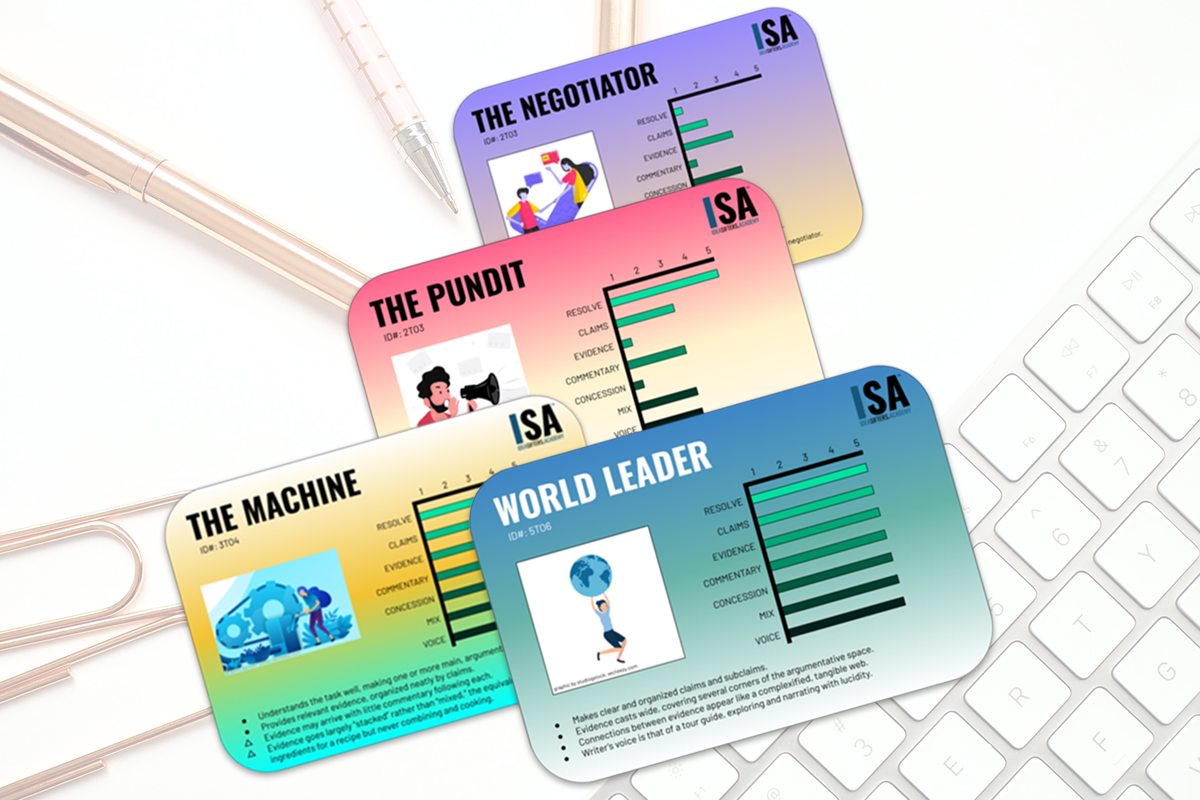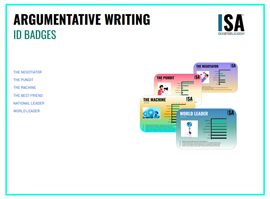Teachers want to communicate to students more than mere numbers, and making the feedback process efficient and clear remains a kind of holy grail of teaching. Helpful is to meet students where they already are: students understand games and stories, and they understand characters within games and stories. “ID Badges” are a way to characterize the writers in a class and champion every personality for the efforts they do make, even when there’s still room still to grow.
I designed these badges to align with argumentative writing tasks that neither provide students with formal sources nor require students to research and find their own. Rather, these “quick” argumentative prompts require spontaneous exemplification from students, often through stock example types:
- News, current events
- Historical events
- Readings from class
- Theories from other academic classes: bio, chem, psych, etc.
- Personal/local anecdotes that apply to the broader world
- Entertainment that mirrors life: movies, TV, books, comedy
- Detailed hypothetical scenarios
In argumentative writing, the dangers of incorporating examples poorly are few but common: summarizing examples well, but without applying them to your overall argument; ranting and waiting too long before incorporating examples; implementing examples early, but quickly devolving into a rant all the same, ignoring those examples; proving only a basic “yes” or “no” answer to a prompt, instead of proving a reason or angle unique to the example, too; explaining an example and jumping to conclusions quickly, like an attorney doing nothing else other than physically pointing to an exhibit easel.
There’s no “aging out” of strong communication tools: I like to use these badges in my AP Language and Composition class for juniors and seniors in high school. The College Board requires arguments to be clear and applicable on their own terms—if a student chooses to brave a wide pass, they better qualify, and if a student instead purposefully moderates their reach, they’ll need to do so in detail. There’s nothing strange in those aims, and their opposite will remain a familiar sight to writing teachers: unclear claims with little evidence and little commentary. But as students improve, there is a linear direction to the detail added by each writing “character,” even if the path they take is winding.
Ryan Derenberger is a freelance journalist and editor, a Journalism and AP Language teacher at Whitman HS in Bethesda, MD, and the founder of 'The Idea Sift.'






